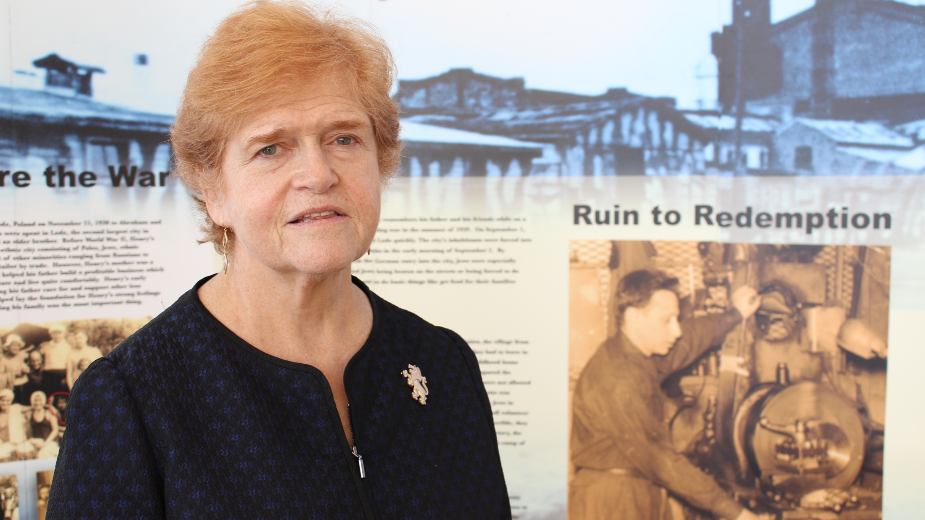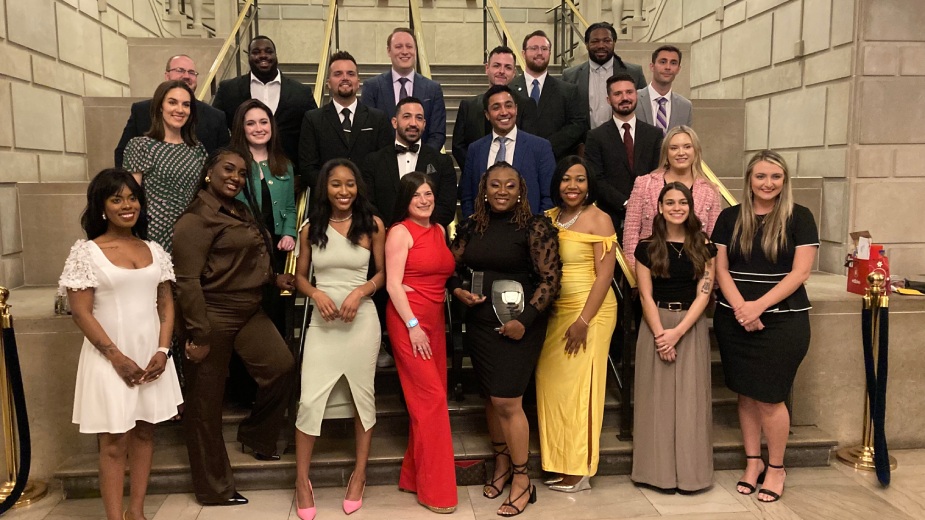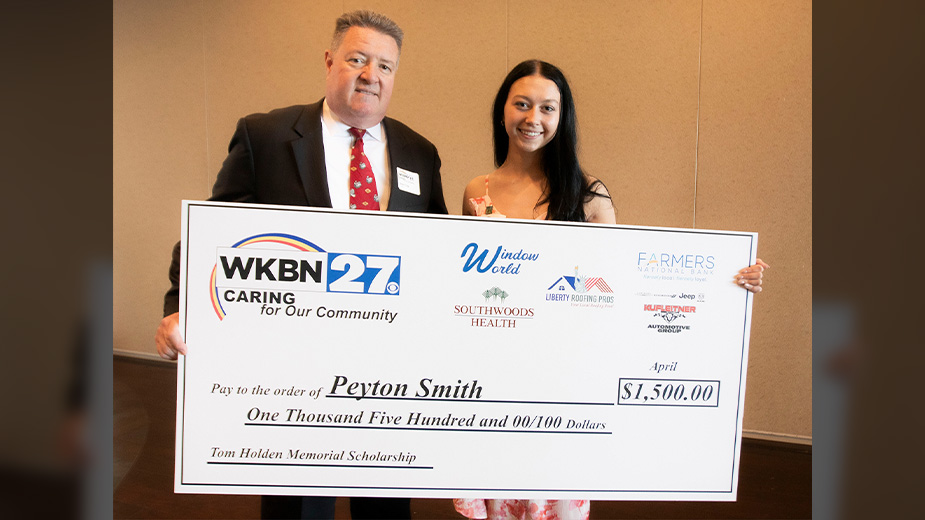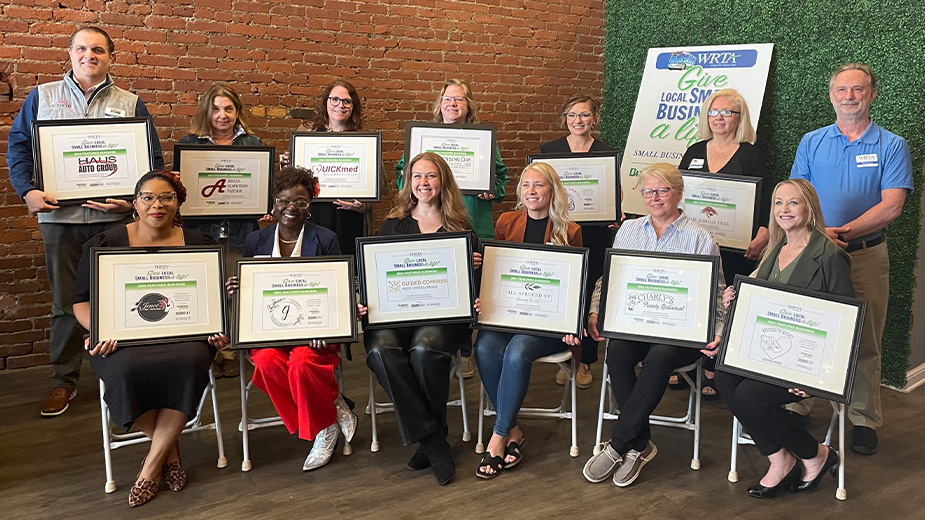Lecturer Warns Against Rising Global Anti-Semitism
YOUNGSTOWN, Ohio — Combating anti-Semitism means standing up against more than just one brand of hatred, a noted scholar on Jewish studies and the Holocaust warned Thursday night.
Dr. Deborah Lipstadt, professor of religion and history at Emory University, was the keynote speaker at the Youngstown Area Jewish Federation’s 2019 Inaugural Event, held at the DeYor Performing Arts Center.
Lipstadt, whose specialty is World War II Holocaust studies, devoted most of her talk to the “precipitous rise” in global anti-Semitism. Examples just in the past year include the massacre at the Tree of Life Synagogue in Pittsburgh. Closer to home, a 20-year-old New Middletown man is in custody after an online post suggested a threat to the Jewish Community Center in Youngstown.
“Many of us are gobsmacked that a couple decades after the Holocaust this is happening again,” Lipstadt said.
The rise in anti-Semitism comes from the political left, the political right and from Islamist extremists, she warned.
“We’ve never had it in the world – and certainly in the United States – where it’s coming from all these directions at once,” she said.
“The haters feel emboldened,” she added. “They feel freer to express their hate in a way they haven’t before.” While the extreme remains on the fringes, things never stay on the fringe, she warned.
One way of identifying anti-Semitism is remembering that every form of prejudice has particular “hateful stereotypes” that are associated with it, she said. Such stereotypes associated with Jews include accumulating money, using intellect in a nefarious way, using power to accomplish goals for their own benefit and, springing from the divide between Judaism and Christianity, that Jews represented a danger to others.
Some anti-Semites – including the shooter in the Tree of Life massacre – act out of racism, a manifestation of what is known as white Christian replacement theory, she said. They are concerned about a supposed organized plan to replace white Christian culture with people of color from Africa, the Middle East and South America; a plan they believe couldn’t be driven by these peoples because they lack the intelligence so it is being manipulated by “an unseen handler,” namely Jews, she said.
Fighting anti-Semitism means being concerned about more than just Jews. “You can’t be selectively against one ‘-ism.’ You can’t say you’re going to be selectively against one hatred,” Lipstadt advised. “What starts with one group goes to another group. We know that particularly with the Jews.”
One thing people have to do to is become “the unwelcome guests at the dinner party” and be willing to speak out rather than excuse hateful language.
“Genocide, the worst of extremism, never begins with actions. It begins with words,” she said. Not everyone who speaks or hears the “hateful words” will commit murder or genocide, but some will, she advised.
Lipstadt is perhaps best known for her legal battle with David Irving, who sued her for libel for labeling him as a Holocaust denier in one of her books.
“Denial,” a 2016 movie starring Rachel Weisz, was based on her later book chronicling the libel case.
“I was really surprised when he sued me because my assumption was he was very proud to be a denier. I think he thought I wouldn’t fight it,” she said.
Despite Irving suing her in England, where libel laws required her to prove what she wrote was the truth, she prevailed in court. “The judge found Irving to be a neo-Nazi polemicist who perverts history,” she said.
Among those who attended Thursday night’s program were local sons and daughters of Holocaust survivors.
Henry Kinast – who founded PSK Steel Corp. and Liberty Extrusion Tool and Die Co. locally – was first sent to a slave labor camp, then was transferred to Buchenwald, where he was interned about four months before the camp was liberated.
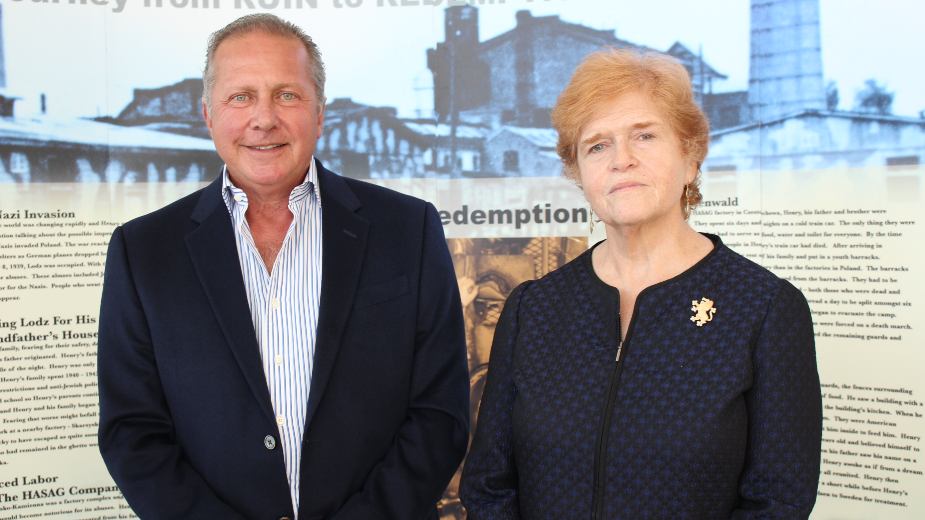
Kinast talked about his experiences when the kids were small but shared much more when they were older, recalled his son, Jerry, of Youngstown. “It was more significant to him. He got more involved,” including later making trips to Germany, he said.
“It’s sad. It’s heartbreaking. But he was never bitter and always looked at the good in life,” said Kinast’s daughter, Terri Anderson, a resident of Liberty Township.
Those who deny the Holocaust “should be ashamed of themselves,” she added.
Rochelle Miller of Youngstown said her father, Bill Vegh, was in the Auschwitz-Birkenau concentration camp for just under a year. She only learned that when she was in sixth grade, about the time she was studying the Holocaust in school.
Vegh, who died in 2009, began speaking in school about his experiences in 1984, after he, like Lipstadt, heard about people who denied that the Holocaust happened, Miller recalled. As that generation passes away, its now the responsibility of the succeeding generations to tell those stories.
“I’ve been very nervous about speaking about the Holocaust but I feel like it’s my duty to continue his legacy,” Miller said.
Pictured above: Deborah Lipstadt addressed the rise in global anti-Semitism at the Youngstown Area Jewish Federation’s 2019 Inaugural Event.
Copyright 2024 The Business Journal, Youngstown, Ohio.
